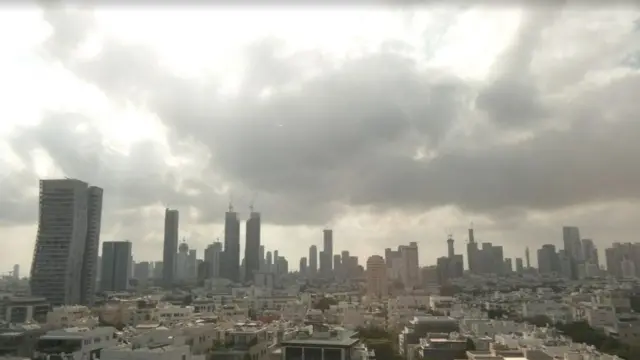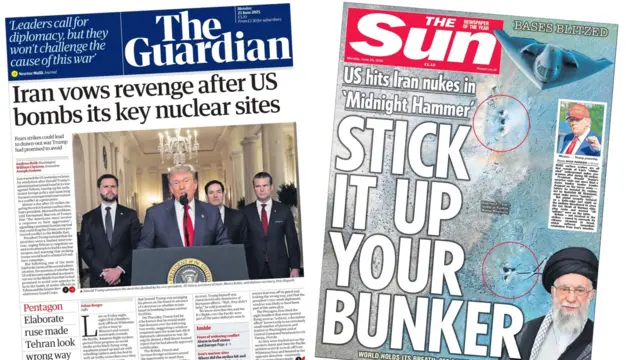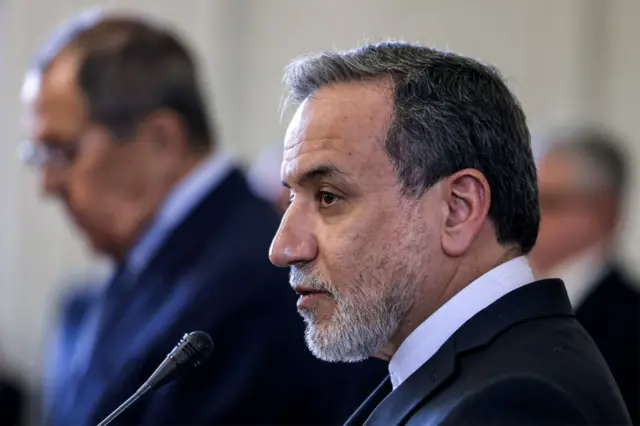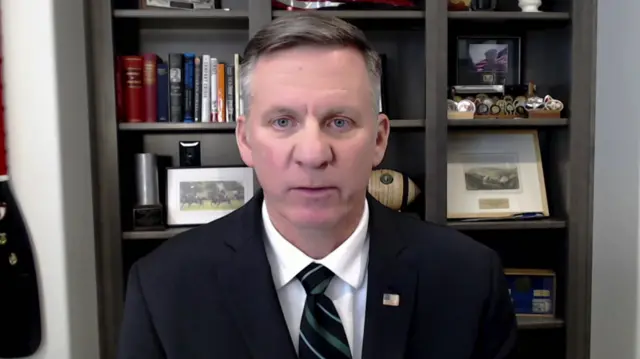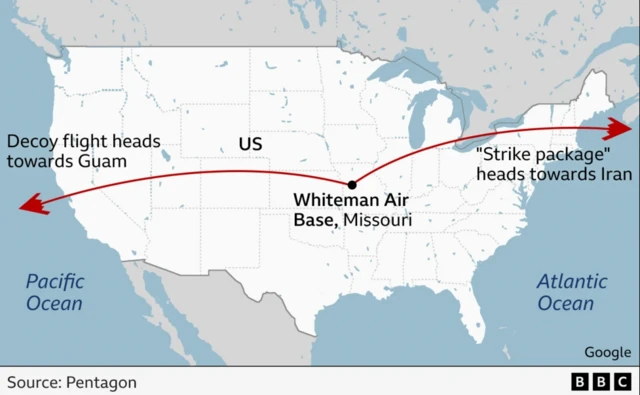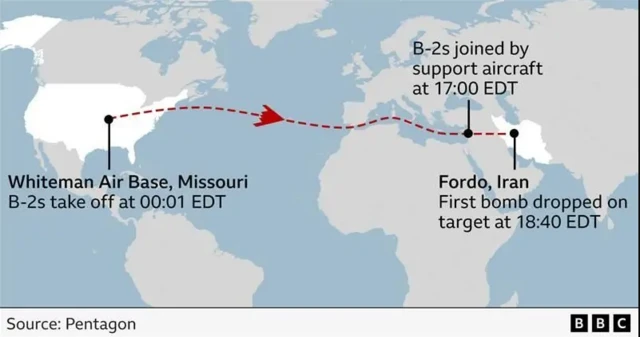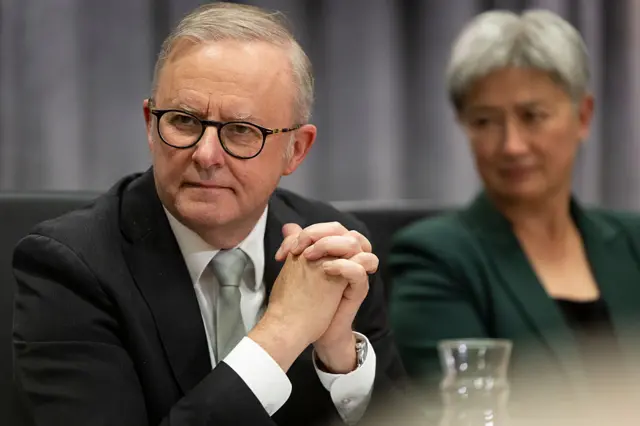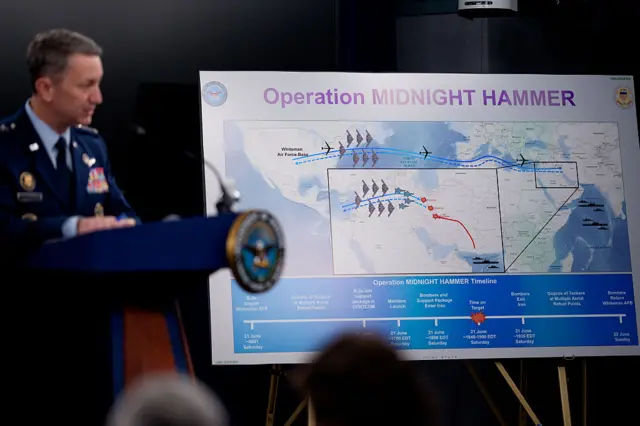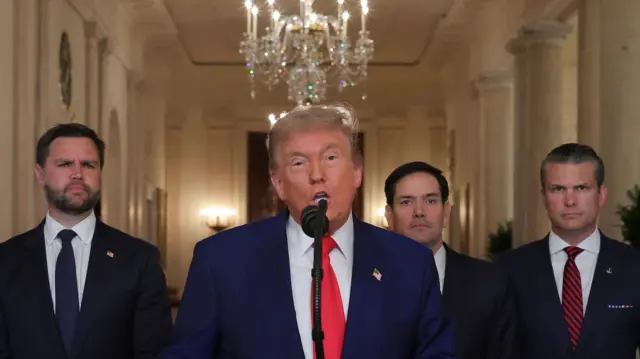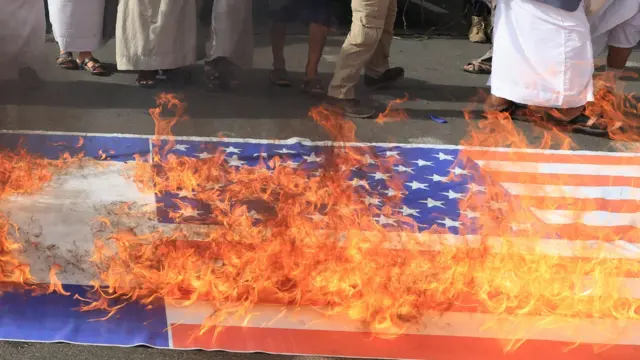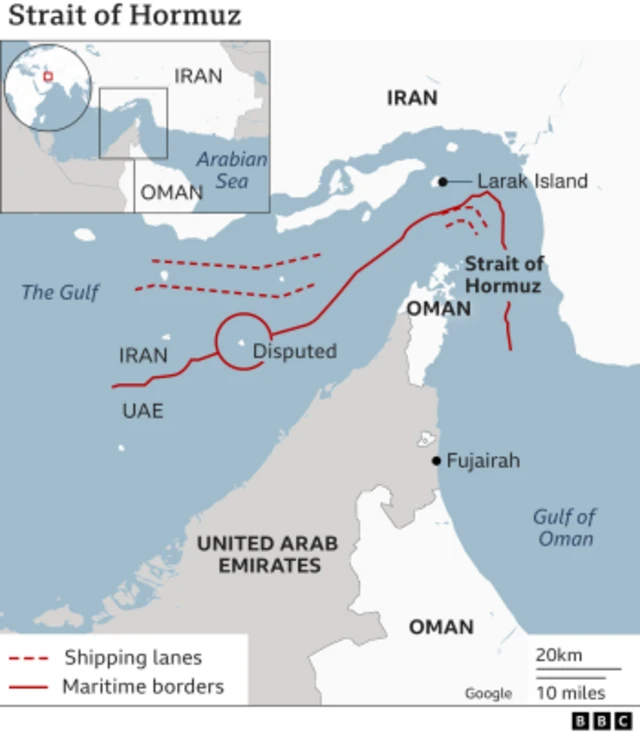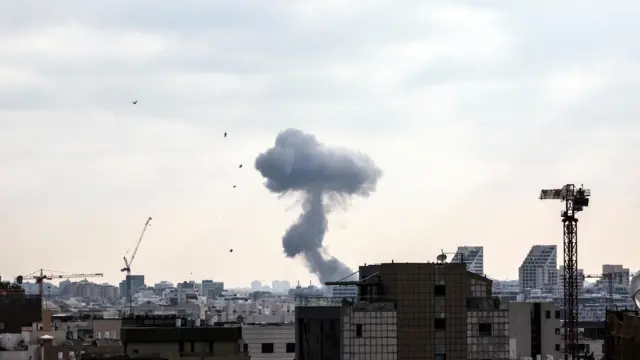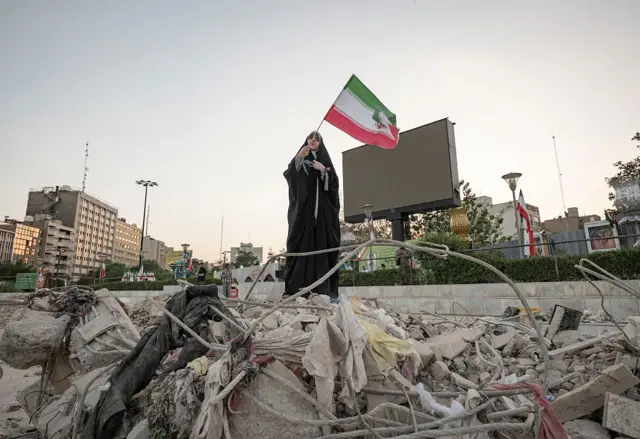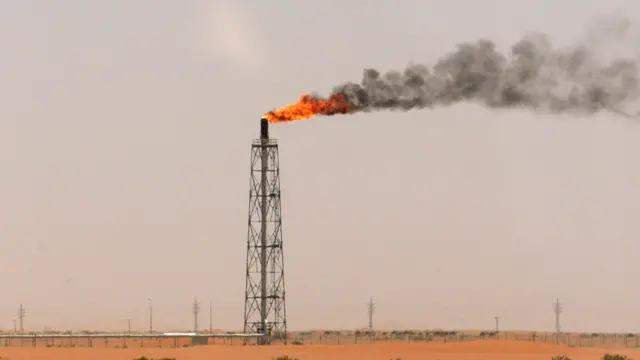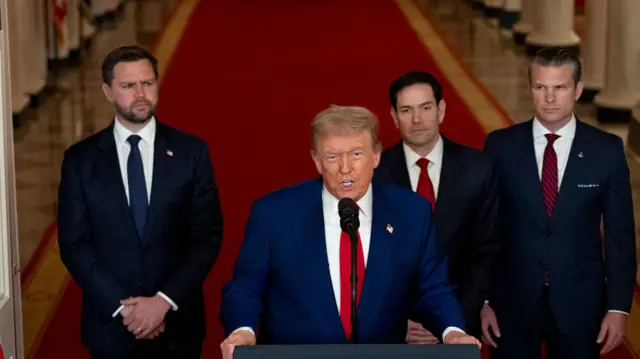Pakistan's Nobel Peace Prize nomination for Trump now seems 'awkward'published at 07:00 BST 23 June
Azadeh Moshiri
Pakistan correspondent
Pakistan has been walking a tightrope. How to reconcile a growing relationship with the Oval Office, and support for a neighbouring country the US has now bombed?
On Saturday, Pakistan was not only praising Donald Trump as a “genuine peacemaker,” but formally nominating him for a Nobel Peace Prize. Just 24 hours later, the US officially joined Israel, a country whose actions Pakistan has called “barbaric”, in attacking Iran.
After thanking Trump for his “stellar statesmanship”, Pakistan is now condemning the attacks he sanctioned, accusing them of violating the norms of international law.
The about-turn is hard to ignore. On social media, Pakistani politicians and the general public are making heavy use of the words “awkward” and “embarrassing”.
The former ambassador to the US, Maleeha Lodhi, has said “ingratiation cannot serve as a policy".
Mushaheed Hussain, a former chair of the Senate Defence Committee, had initially commended the nomination and argued if it “panders to Trump’s ego”, so be it, because the Europeans have done the same.
A day later, he told me while he backs the government’s condemnations, Pakistan should also “revise, revoke and rescind” the submission. He accused Trump of being a “warmonger”.
That tightrope is getting incredibly thin.
